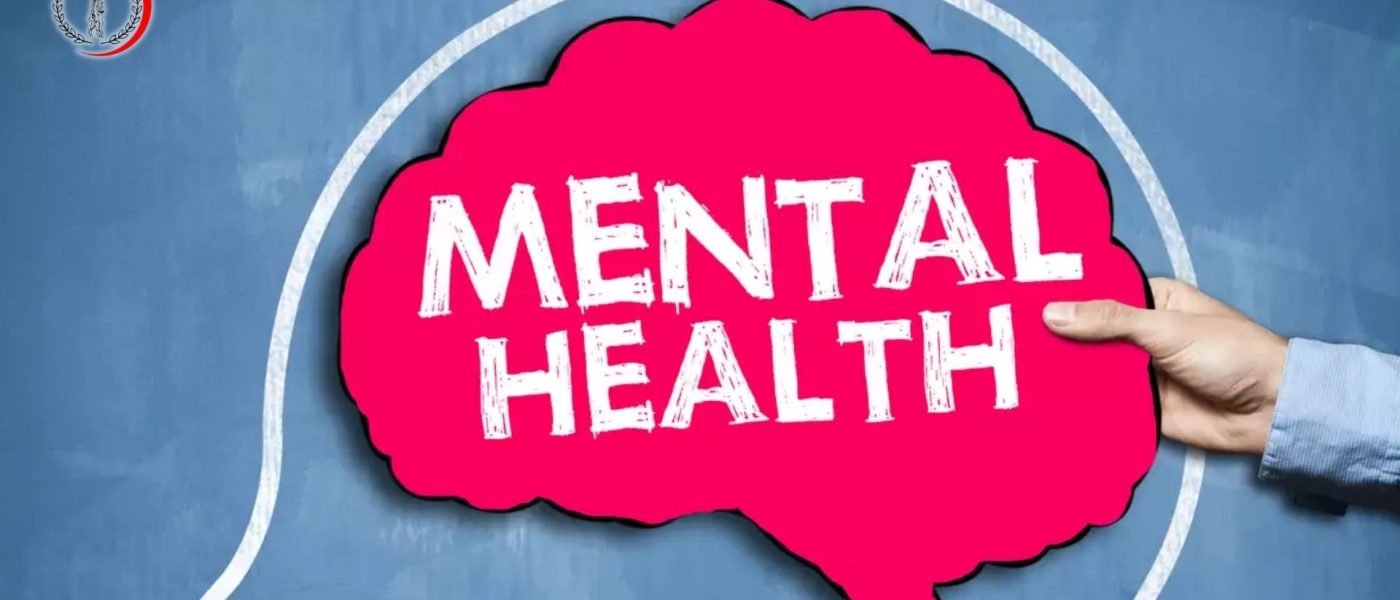- (021) 38230856
- [email protected]
Post: What is Mental Health and How Does It Affect Your Daily Life?
Home
News
Single Post

People often forget or get the wrong idea about how important mental health is to overall health. For instance, most people think of being physically healthy or not having any illnesses when they hear the word “health.” However, health isn’t just about the body; it’s also about the mind and heart. In fact, every day, our mental health shapes how we think, feel, and act. As a result, it changes how we handle stress, make friends, and decide what to do.
Because of this, and considering how busy and stressful life is these days, taking care of our mental health is just as important as our physical health. So, this brings us to the question: What is mental health? How does it affect daily life? What affects mental health? How can you deal with it in a real-world way?
What is mental health?
The World Health Organization (WHO) defines mental health as being in a state of well-being where a person knows their skills, can deal with everyday stresses, works well, and helps their community.
Therefore, it’s not enough to say that you don’t have a mental illness; you also need to have good mental health. Taking care of your mind helps you:
- Deal with stress well
- Keep your ties in good shape
- Do well at work or school
- Get stronger to deal with things that come up
What your mental health means for your daily life
Poor mental health doesn’t just affect the mind; instead, it affects almost every part of life. A lot of the time, these are the signs:
- Doing work and getting things done:
Mind issues like depression or nervousness can make it tough to concentrate and choose what to do. Because of this, people can miss work or even lose their jobs. - Friends and family:
If you have a mental health problem, you may become angry, shy, or have trouble talking to people. Consequently, this can hurt your relationships with family, friends, and co–workers. - The body’s health:
The health of your mind and body is closely connected. For example, worry and stress can give you headaches, high blood pressure, stomach issues, or weaken your defense system. - Every day, how well you do things:
It can be hard to do easy things like get out of bed, cook, or go to work when your mental health isn’t good. - Making Picks:
Some people have trouble making good choices when they are mentally ill. In turn, this can affect their finances, work, and personal lives.
Being mentally healthy, on the other hand, makes you feel better about yourself, more creative, and better able to solve problems. Therefore, this makes life easier and more fun.
Things that can hurt your mental health
There are many things inside and outside of people that can hurt their mental health. These are:
Things related to biology
- Genetics and a history of mental illness in the family
- Brain chemicals that are out of whack
- Physical health problems or illnesses that last a long time
Things in the nearby area
- Living in places that are dangerous or scary
- Being in places with violence, abuse, or stress
- Not having enough money or the things you need
Factors in society
- Being by yourself or lonely
- Relationship problems
- Unfair treatment or shame
Lifestyle
- Not taking good care of their food, and a lack of exercise
- Too much technology, drugs, or drinks
- Sleep habits that don’t stay the same
Stress from school and work
- Work or school stress
- Do not have a job or do not know what your job is
- Working a lot of hours and not having enough time to do other things
Clearly, the way you deal with each of these things can make or break your mental health.
What You Can Do to Get Over Mental Health Issues
What is mental health, and how can it be improved? You need to work on your mental health all the time and be aware of yourself to keep it in great shape. With this in mind, here are some strategies that have been shown to work:
- Take care of yourself:
Taking care of yourself isn’t selfish; it’s important. For example, do things that calm you down, like reading, gardening, or going outside.
- Keep going:
Going for a walk is good for both your body and your head. Endorphins are chemicals that make you feel good and lower your stress when you work out regularly. - Maintain your physical health:
Omega-3 fatty acids, vitamins, and minerals are among the nutrients that are beneficial for the brain. Therefore, consuming fruits, vegetables, and whole meals is advantageous for one’s mental well-being. - Obtain an adequate amount of sleep:
Stress and depression are exacerbated by inadequate sleep. Thus, the recommended amount of sleep per night is 7 to 9 hours. - Express your emotions:
Maintaining one’s thoughts to oneself induces an increase in tension. Therefore, it can be extremely beneficial to consult with a trusted friend, family member, or psychologist. - Seek assistance from a competent:
If you are experiencing difficulty with your daily activities due to anxiety, depression, or concern, visit a psychologist or psychiatrist. Remember, therapy, counseling, and occasionally medication are available to individuals who are experiencing mental health issues. - Establish social connections:
Engage in volunteer work, maintain communication with peers, or join groups in your location. In this way, being in the company of others alleviates feelings of isolation and improves one’s mood. - Don’t drink, smoke, or take drugs too much:
Stress and sadness can get worse if you take too much of these things. The keyword is balance. - Relax and pay attention to what’s going on around you:
Some ways to calm down and deal with stress are to meditate, do yoga, or do deep breathing techniques. - Make sure you can reach your goals:
Enjoy small wins as you work toward big goals. As a result, this makes people feel less stressed and sure of themselves.
Mental health should not be looked down upon
One of the hardest things for people to deal with is the shame that comes with having a mental illness. Many people are scared to ask for help because they don’t want to be judged. Therefore, to get rid of this shame, we need to learn about it, talk about it, and be aware of it. Keep in mind that it’s not a sign of weakness to ask for help.
Last Words
What is mental health? General health starts with mental health. Feelings, opinions, and deeds are all impacted. Consequently, resilience and fulfillment can be enhanced through understanding mental health issues and learning to control stress. So, when needed, seek a specialist for your mental or physical health.
Support Services for Mental Health at Koohi Goth Hospital
Comprehensive mental health care is a top priority of Koohi Goth Hospital. Among the things that we do are:
- Counseling for mental health issues
- Education initiatives on mental health issues
- Teen and women’s support groups
- Integrating mental wellness into primary care
- Providers of affordable mental health services
Everyone should have access to mental health care, regardless of their background. For this reason, the goal of integrating medical and mental health services at Koohi Goth Hospital is to lessen stigma and increase hope.
